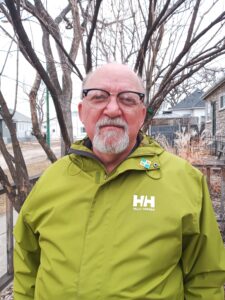
Geocaching
When my wife and I first started geocaching we were puzzled by the letters that were used by various geocachers when they logged a find. There were also acronyms used in the descriptions which we had to learn so that we could solve a few of the mystery caches. Imagine looking back on the logs for a clue to solve the one you are working on and coming across “YAPIDKA, SOOP, CO should check, easy P&G, TNLNSL, TFTC”. No, the aliens are not searching for geocaches. That stands for “yet another park I did not know about, something out of place, cache owner should check, easy park and grab, took nothing left nothing signed log, thanks for the cache”.
Allacronyms.com lists 176 of these shortened words in their geocaching abbreviations list. Fortunately only a few are commonly used by most cachers.
So, what is a TOTT? The acronym stands for tool(s) of the trade. Basically, any tool used in the progress of acquiring a cache. What tools (TOTTs) should you carry with you?
The most important one is a pen or pencil. I prefer a pen that will write upside down and on wet paper. A pencil will do that also but requires a slight bit more pressure and may tear wet paper easier. A pair of tweezers can come in real handy for certain types of caches, for retrieving the caches or for removing the log sheet.
Another TOTT that is useful for higher caches is a collapsible magnetic pickup tool. This increases your reach by about three feet and helps you lift out the cache from certain hosts that are abundant in Manitoba. I also have a walking stick with a small peg at the top for this purpose. Some cachers have other collapsible tools such as a golf ball retriever modified for this. At times there may be a branch or similar item near the high cache to retrieve it with.
We carry a small extendable mirror with an LED light. This has come in handy many times and kept us from having to get on our hands and knees. A pair of gloves is handy for searching pine trees which have sharp needles or pine sap that may be close to the hide.
These are the basic tools that are easy to carry while out for a walk. There are numerous ones that are needed on rarer occasions and range from a small screwdriver to a ladder. One cache in mind is about 14 feet above ground level and fastened so that you actually need to climb up to it to log it.
The first entry on most logs will have the letters FTF. This stands for first to find. Occasionally STF is used for second to find. If you see a DNF on the web page for the cache it stands for did not find.
The CO is the cache owner who would place the cache at GZ or ground zero using a cell phone or GPS receiver (also GPSr) or a Global Positioning System receiver. Hopefully this would be a location without PI, poison ivy.
If the cache is large enough it may contain TBs, travel bugs or SWAG, stuff we all get. Please don’t confuse the two. SWAG is something that you can trade for an item in the cache that you will leave in place of, in the cache. It should be of equal value or better and is something that you can keep. Do not leave anything edible as that can attract anything from wasps to coyotes. A TB is something that you can trade, or just pick up to move along to another cache that will hold it. TBs are meant to be moving around and are not to be kept unless the TB owner has made it collectable. A TB will have a unique code on it to allow the owner to track it.
An acronym that you may notice a fair bit is P&G, park and grab. It is usually used for an easy to find cache with good parking. If you find it difficult to find you can check on the location with a PAF, phone a friend.
TFTC, thank you for the cache is also used with the last letter exchanged for an E, event or an H, hide. There is an ongoing discussion regarding the use of this one worldwide as some feel that the thank you should be spelled out and not abbreviated. That discussion will continue as will the use of the acronym.
If you have any acronyms that you would like clarified come out to an event, especially a CITO, cache in trash out where Geocachers show up at an area, clean up the trash and finish up discussing anything that comes to mind, usually geocaching related.
HTSYOTT, hope to see you on the trail (I just made that one up).
Gary Brown is the President of the Manitoba Geocaching Association (MBGA) and can be reached at MBGAexec@outlook.com.



